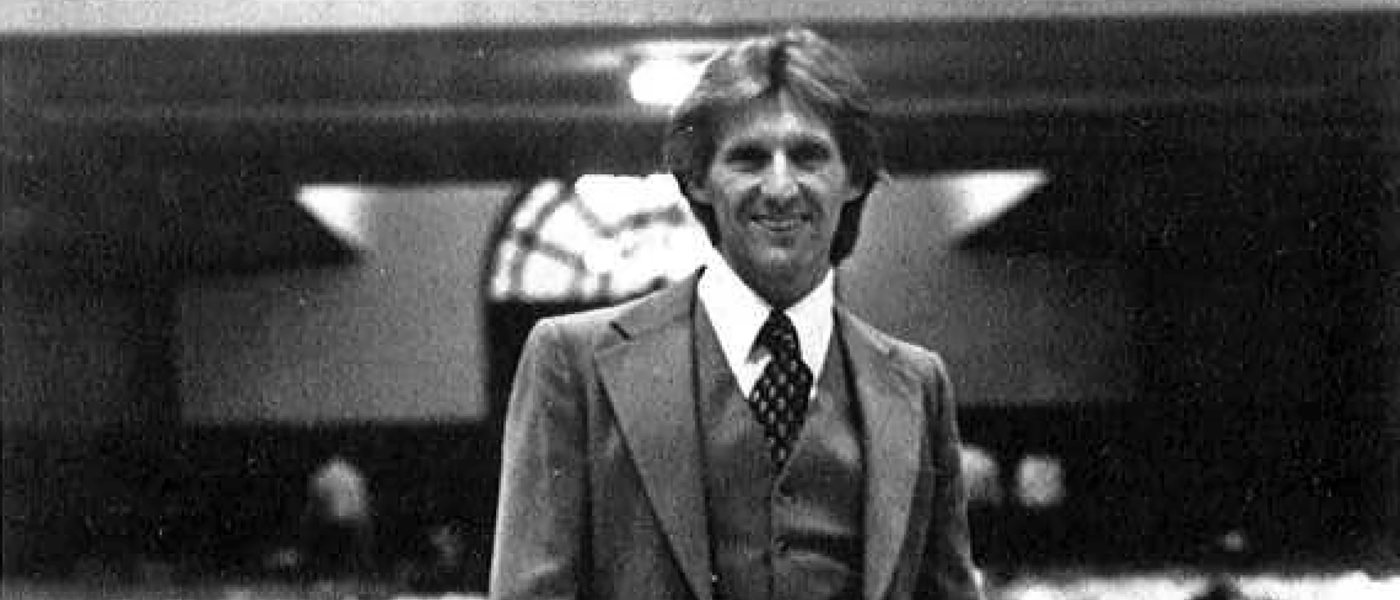In Memory of Robert Sikso
Above: A photo of Mr. Sikso taken in 1980.
Robert Sikso, longtime teacher of mathematics at Regis, passed away on Tuesday, March 31 at the age of 81. Mr. Sikso first came to Regis in 1963 and eventually chaired the Math Department for years. While teaching at Regis, he earned a doctoral degree in mathematics from Fordham University. He retired from Regis in 2001 after 38 years of distinguished service. You can read his full obituary here.
When Mr. Sikso retired in 2001, his longtime colleague, the late Mr. John Connelly ’56 P’90’99, wrote a tribute to his friend. It is re-published in full below.
Lawdy, lawdy, lawdy Miss Clawdy: it proved to be quite a run. A mega-hit that opened in September 1963 and didn’t close until June 2001.
The preeminent thing that Regis and Regians should remember Bob Sikso for is that he was a terrific mathematician and a terrific teacher of mathematics. Of educational theories (that gassy banter) he was innocent; but he knew his subject inside and out. And it was Math that he taught, not problem solving: theorems and proofs (with examples to serve as illustrations to the theory). He also knew how to teach math. True, he had the gift (it is of the gods and nothing to be learned in school), but he developed his gift of teaching, honing, refining, perfecting. Suffice to say: Bob Sikso has been one of those who deeply understands, and has striven to help his students to understand, the imperishable verse.
Euclid alone has looked on Beauty bare.
Next to Remember: his stewardship in the Math Department. For almost 30 years of his stay at Regis, he was the Math Department chairman. That too was quite a run. What it meant was this: through all the vagaries of faddish “methodologies” and all the changes in personnel, one man, in a position of some authority, was able to maintain at Regis the learning of mathematics. And more: he was able to bring about an upgrading of the curriculum – slowly, imperceptibly, organically, with incremental improvements – with a cumulatively gigantic impact. And yet more: his own excellence was a steady encouragement to his colleagues. Of course he did not do these things alone. Not a sentence should be read as denying the wonderful contributions of the other math teachers. Yet, nonetheless, for 30 years it was he who provided both the Permanence and Progression of mathematical learning at Regis.
I have been stressing these academic and intellectual things because I believe them to be Bob’s great legacy. The other stuff, the things alumni and current students talk about when they recall him as their teacher, is certainly memorable but not the real thing, and sometimes I fear they camouflage his best achievements. Which is not to deny that the other stuff is memorable: the elegance of the attire and gesture, the wittily outrageous cracks, the arch commentary, the obscure bonus questions, the patter, the quick-time step – who could forget these? Great show biz, great schtick. (It should come as no revelation that all good actors are manqué.)
This recalls Bob Sikso’s third enduring impact on Regis: theater. He started directing, if I remember aright, in the spring of 1970. (Would you believe he previously moderated the Bowling Club? I don’t.) So again, for almost 30 years (and again by no means alone), he agreed to direct or assist in directing (“but this is the last time!”) musical productions at Regis. The actors he held to very high standards indeed, and he patiently taught them how to reach them, so that even when those standards proved, in the event, to be out of their reach, the effort to attain them brought performances that were utter joys.
And if his theatricality was the “person” that he chose to present to Regis, in class or out, it was also at the same time at least part of the true Sikso. This very private man loved above all classical American theater music – what the great historian John Luckacs called “the kind of popular music that, even more than the movies, was America’s unique art form.” He was a citizen of that small (small but not exclusive) republic of those civilized folk who cherish that music; and a patrician among the citizens because he performed it. To see the graceful athleticism of his dancing, to hear the warmth and power of his singing – each time has been a benediction.
What an extraordinary and wonderful coincidence (Chesterton called coincidences “spiritual puns”) that in the last week of his teaching at Regis, The New Yorker should provide such powerful visual evidence of the career he chose to forego in order to give his other gifts to Regis.
Learned gent, esteemed colleague, song-and-dance man extraordinaire and dear friend: fare well.
Read more Regis news
